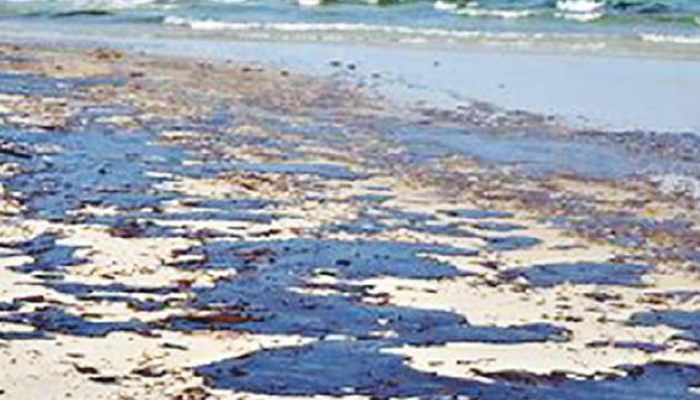A devastating oil spill from a Nigerian National Petroleum Company Limited (NNPC) wellhead, designated Oil Mining Lease-15, has triggered a raging inferno in Buguma, Asari-Toru Local Government Area, Rivers State, Nigeria. The spill, which has persisted for several days, has spread across waterways into the neighboring Degema Local Government Area, wreaking havoc on the aquatic ecosystem and posing significant health risks to local communities. The incident has sparked outrage and calls for immediate action from both the government and the NNPC.
Community members report a complete absence of response from government agencies and NNPC representatives, exacerbating the unfolding environmental disaster. The fire, fueled by the continuous oil leak, has decimated aquatic life, including fish and periwinkle, essential sources of food and livelihood for the local population. Residents describe a scene of environmental devastation, with hazardous gases filling the air and the pervasive smell of burning oil permeating the area. The lack of immediate intervention has amplified their frustration and anxieties, leaving them feeling abandoned and vulnerable.
Livingstone Membere, President of the Kalabari Youth Federation, expressed profound disappointment at the perceived insensitivity displayed by the NNPC. He criticized the company’s inaction and demanded a swift and comprehensive response from the federal government. Membere’s plea highlighted the urgency of the situation, emphasizing the need to extinguish the fire, initiate a thorough environmental clean-up, and provide adequate compensation to the affected communities. He questioned the government’s apparent disregard for the crisis, asserting that the oil belongs to Nigeria and thus warrants immediate federal intervention.
Community accounts offer conflicting narratives regarding the origin of the spill. While the official police statement attributes the incident to a faulty valve, local sources suggest a different cause. Taribo Horsefall, a youth leader from Buguma, alleges that the fire erupted during oil syphoning operations from a barge. He describes witnessing a spark during the extraction process, which is believed to have ignited the blaze. This discrepancy underscores the need for a thorough investigation to determine the precise sequence of events leading to the disaster and to establish accountability.
Traditional leaders within the affected communities echo the calls for urgent intervention. They report having contacted relevant authorities repeatedly, yet their appeals have seemingly gone unanswered. The chief emphasized the growing health threat posed by the spreading fire and oil slick, forcing residents to flee their homes. He reiterated the devastating impact on the local ecosystem, highlighting the death of fish, the destruction of mangroves, and the loss of periwinkle harvesting grounds. The collective plea from the community underscores the desperate need for immediate action to mitigate the escalating environmental and human health crisis.
The official response from the Rivers State Police Command, through spokesperson Grace Iringe-Koko, confirms the spill and attributes it to a faulty valve. While the statement acknowledges that relevant government agencies have been alerted to the situation, it provides no details on specific actions being taken or a timeline for intervention. This lack of concrete information further fuels community anxieties and underscores the perceived disconnect between official pronouncements and the lived realities of those directly impacted by the disaster. The situation remains critical, demanding immediate and decisive action to control the fire, contain the spill, and initiate the long process of environmental remediation and community recovery. The incident highlights the urgent need for stronger regulatory oversight of oil operations and improved emergency response mechanisms to prevent and mitigate such devastating environmental disasters in the future.














